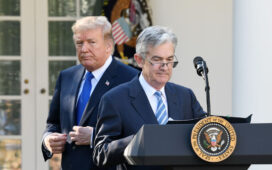Shortly after the DOL’s Employee Benefits Security Administration finalized its ESG rule, the GOP attorneys general filed their lawsuit, alleging that the 2022 Rule “undermines key protections for retirement savings of 152 million workers—approximately two-thirds of the U.S. adult population and totaling $12 trillion in assets—in the name of promoting environmental, social, and governance (‘ESG’) factors in investing, including the Biden Administration’s stated desire to address climate change.”
The ESG rule ended a Trump-era ban on retirement investment managers considering ESG factors. Then, 26 GOP-led states argued to a federal appellate panel July 9, 2024 to get the rule overturned. However, now that the Supreme Court overturned the Chevron case last year, which affects how federal agencies defer cases where Congressional statutes are ambiguous, the ESG case was sent back to the Texas district court.
The Chevron doctrine, so-called for its establishment in a 1984 Supreme Court decision, Loper Bright Enterprises v. Raimondo, would require that federal courts be deferential to federal agencies’ interpretations of ambiguous language. However, in this landmark case, the Chevron Doctrine no longer applies to cases involving rulemakings of the federal government.
The appeals panel had called for Judge Matthew Kacsmaryk of the US District Court for the Eastern District of Texas to consider the impact of the Chevron ruling on the DOL ESG rule. Last week, Kacsmaryk for the second time found that ESG investment decisions don’t inherently harm participants and beneficiaries, despite the government’s position and in light of the Chevron ruling, marking a return to his September 2023 decision that leaned heavily on agency deference in allowing the rule to stand.
The judge noted that fiduciaries “should strenuously guard against letting impermissible considerations taint their decisions” and that it’s not the court’s job to decide the best outcome but rather to interpret the law. He concluded that “the 2022 Rule does not permit a fiduciary to act for other interests than the beneficiaries’ or for other purposes than the beneficiaries’ financial benefit.”
However, the judge’s latest ruling runs counter to another Texas judge’s decision in the American Airlines ESG 401(k) lawsuit last month, when the judge ruled that American Airlines breached its fiduciary duty, under the Employee Retirement Income Security Act, by basing investment decisions for its $26 billion employee retirement plan on environmental, social, and other non-financial factors and not in the “best financial benefit” of retirement plan participants, in the biggest victory yet questioning ESG investing.
In this case, both sides must submit evidence to the court to determine what losses, if any, have occurred as a result of BlackRock’s and American Airlines’ ESG investments in the 401(k) plan.





